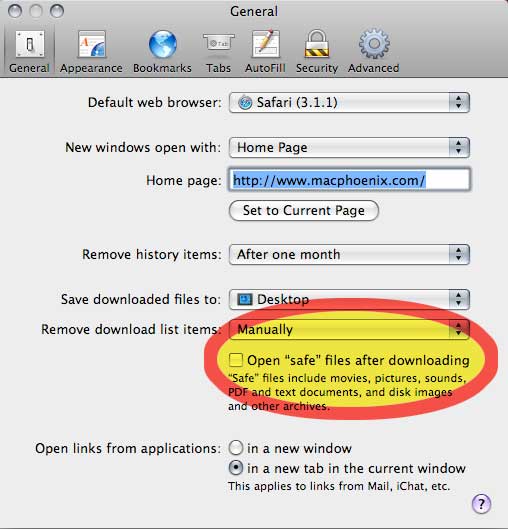I saw **The Police** play at [Jones Beach][1] on August 5. Back in the early spring, my friend Melissa said she was going to the August 4 show. At the time, I was sure I missed the opportunity to see The Police in their extra-final-for-real-we-mean-it concert, as they had came through the area last year, and the August 4 show was already sold out. But through a perfect example of serendipity (but not [synchronicity][2]), the day that Melissa came over, they had just added the August 5 show and the tickets had gone on sale that day.
The seats I got were expensive, but not great seats. Still, Katherine and I were sitting in the middle of the theater, and, while in the top section, we had a great view. Some of those seats at the top suffer from really awful echo effects due to the concrete walls around that section, but we far enough away from any of them, so the sound was pretty good, too.
Now, when I purchased the tickets, the **Ticketmaster** site proclaimed that **Elvis Costello and the Attractions** were opening the show. Of course, it was **Elvis Costello and the Impostors**, since the Attractions bassist, **Bruce Thomas**, and Elvis Costello haven’t spoken for over 10 years. Still, I was extremely excited to see a show that I could have very well seen back in 1979, except that it would have been very irresponsible for my parents to let an 8-year old go to a *new wave* concert at **CBGBs**.
I am a huge fan of Elvis Costello, and his opening act was fantastic. He’s a *performer-extraordinaire*, and he got the thin but dedicated crowd excited and involved. (Most of the audience didn’t begin to enter the theater until the sun began to set around 8 o’clock, but Elvis got on stage before 7:30.) However, except to mention that **Sting** came out to sing “Alison,” and all three of The Police came out dressed as late 70s Elvises during Elvis’s last song, “Radio Radio,” I’m not going to talk more about Elvis’s set here.
Nor will I point out that most of the audience, a bit on the older-side, was there to see Sting, because he is so sexy or something, and not the band “The Police.” My wife, Katherine, was amused at the inappropriate shoe-selection of many of the women in our section, high up and plenty of steps to get there. “What?” she wondered, “Did they think that Sting was going to see them up here and notice how sexy their shoes were?”
The Police started off their set with “Message in a Bottle,” and “Walking on the Moon.” Both of these were a bit jazzier than their studio-versions, but very recognizable. Sting sang every song with a kind of wizened detachment. It seemed he was older and didn’t recognize the kid that wrote these lyrics–or maybe that was more of a reflection of the person watching Sting. I don’t know how many people recognized “Demolition Man,” because it’s not often played on the radio and it certainly lacked the signature horn-section from the studio-version. It was then that I noticed that The Police were just the three of them. I *knew* it was just going to be the three of them. But I’m jaded, I guess, seeing concerts with 57 people of stage. But they’re a power-trio. It’s only going to be them on stage. So, I dug “Demolition Man,” even though it was vastly different from the only version I’ve ever heard before. The essence was there without the production.
At this point, I noticed, too, that Sting and **Andy Summers** were using a single bass and guitar, respectively. They didn’t have racks of instruments behind them, using a different one for each song. The varnish on their guitars was wearing off in spots. This really impressed me for some reason.
Their next songs were “Voices Inside My Head,” joined with “When the World Is Running Down, You Make the Best of What’s Still Around.” Then, “Don’t Stand So Close to Me,” and “Driven to Tears.”–a nice “Zenyattà Mondatta” set. “Zenyattà Mondatta” was the first album I really got into, thanks to my mom. She would play it often, and the sound of this album was truly unique. Years later, I found out that The Police were rushed in the production of this album, and were never satisfied with the end results. There were problems in the studio, and they had lost the original track reels. It was this reason, that in 1986, they went back in the studio to re-record “Don’t Stand So Close to Me.” We all kind of dodged a bullet there, since the re-recording sessions were so awful, ending The Police recording together That 1986 version was really, really awful and is never discussed in polite company. The concert version on August 5 was closely hewed to the version from “Zenyattà Mondatta,” thankfully.
“Everything She Does Is Magic” followed a wonderful version of “Hole in My Life.” Then they played “Wrapped Around Your Finger,” where I explained to Katherine that the song helped increase my vocabulary way back when, with words like *alabaster* and *fruition*. My dad had a cat named “Mephistopheles,” so I already knew that one. They followed that with “De Do Do Do, De Da Da Da,” which I believe decreased my vocabulary way back when.
And then they played “Invisible Sun.” For most of the concert, the screen behind The Police was just showing various close-ups of the band, with the occasional gratuitous graphic embellishment thrown in. But for “Invisible Sun,” the images were black and white photographs of children’s faces, mostly, I suspect, from [war-torn nations][3] because most of the children were not white. All at once, I remembered why I practically worshiped The Police back in high school. The song, nominally about [growing up in Northern Ireland][4], has not, sadly, lost its relevance. “I don’t want to spend my time in hell/Looking at the walls of a prison cell/I don’t ever want to play the part/Of a statistic on a government chart.” Seems there are a score of places I can apply this to. I’m shocked that my nation is one of them.
The Police aren’t all about geo-politics though, and their next songs returned the screen to what the audience wanted to see, Sting and his skin-tight shirt soaked through with sweat. Blending “Can’t Stand Losing You” and “Reggatta De Blanc” into an audience participation bit was inspired, and it closed the first set.
They opened the next set, or the first “encore,” with **Jimi Hendrix’s** “Purple Haze.” I imagine this was a bit for **Stewart Copeland** and Andy Summers to show off their chops. Then “Roxanne,” “King of Pain,” “So Lonely,” and “Every Breath You Take” completed that set. “Every Breath You Take” may have been necessary, as it’s their most popular song, but it was as much a downer live as it is on the radio. The video was cool, I remember, but just about everything else about this song rubs me the wrong way, from fans misunderstanding its totally horrible message of controlling another person to its constant overplay on the radio and its use in an even more awful **Puff Daddy** track.
But all was forgiven by a second encore of “Next to You,” my second-favorite early Police song. (The first is “Hole in My Life,” for those of you with scorecards.) They showed pictures of the roadies and technicians on the tour while they played it, and Sting came out without his shirt to sing it. Everybody wins.
Katherine had heard they were closing the show with “Synchronicity II,” but after “Next to You,” the lights came on and we were done. At 10:30. Old people suck.
At any rate, the show was worth every dollar. I wish it wasn’t, since it just encourages these older acts to charge way too much for shows. The concert t-shirts–“without sleeves,” I kept yelling–were $35. (With sleeves–$40. I wish this was a joke.) The bottled waters, oddly not branded by The Police, were $4.50. And there’s no beer at the Jones Beach Theater. Bah. I guess complaining about things is another thing older people do. Now get off my lawn!
[1]: http://www.livenation.com/venue/getVenue/venueId/287
[2]: http://en.wikipedia.org/wiki/Synchronicity
[3]: http://www.incore.ulst.ac.uk/services/cds/countries/
[4]: http://en.wikipedia.org/wiki/Invisible_Sun





